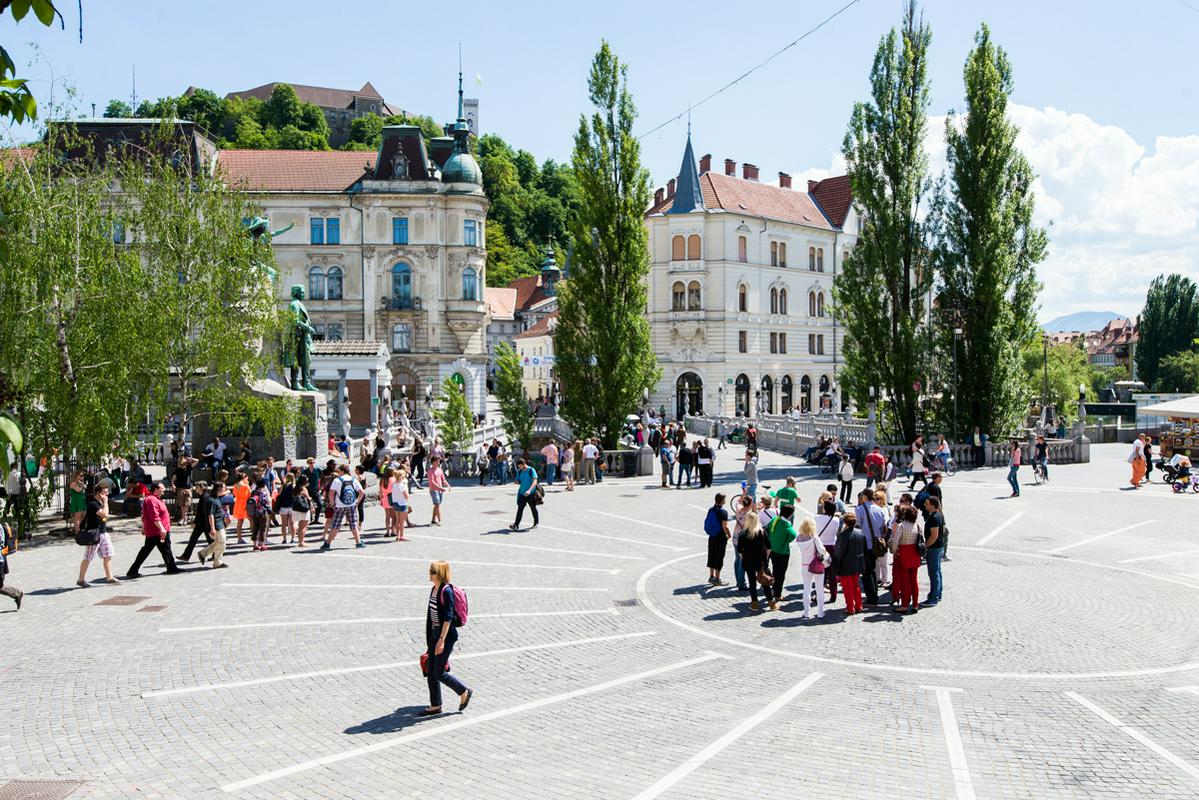
In the decade after World War II, Slovenia was still a mostly rural society far from the cosmopolitan hustle and bustle of Western cities. The traditional lifestyle helped to preserve several ancient trades at a time when many had long vanished from more developed countries.
Still seen in the 1950s were the women of Bohinj and other dairy-producing areas who traveled from village to village selling butter, cheese, and other dairy products from Slovenia’s Alpine pastures. Also doing house calls were knife sharpeners, many of them Gypsies (Roma). They made their living sharpening knives, scissors, and other household implements.
In Ljubljana, then still a relatively small provincial town, shoe shiners were a common sight. Almost as common were porters, who could be found at the main railroad station and other key spots around the town. Equipped with tricycles, they played the role of couriers, and carried documents and other packages where needed. They were also movers, house cleaners, and security men. Some even helped local merchants to close down their shops in the evening. The porters’ hours were long - from seven in the morning to seven at night, regardless of the weather, and the competition between them was always fierce.
In an era before everyday objects became disposable, some craftsmen specialized in repairing old umbrellas, while others visited homes to fix broken pots and pans. Most of the trades were done by men, but a few of the professions were reserved for women. Particularly common were washerwomen, who would pick up dirty laundry, soak it in lye, rinse it in country creeks, and return it to homes in Ljubljana and Trieste. They could often be seen carrying large bundles of laundry.
On Ljubljana’s central Prešeren Square, a man set up shop every spring. His art was an unusual one: he made his living by selling paper cut-outs with profiles of passers-by.
Even well-known professions operated just a little differently at the time: Dairies would deliver milk straight to their customers’ doorways, while bakeries accepted bread kneaded at home. The loaves typically included their owner’s initials to make sure everybody ended up with the right loaf of bread at the end of the day.
Rapid industrialization and modernization spelled the end of these trades. Some were replaced by new technologies, while others were just too inefficient to survive the hectic pace of modern life. Still, some decidedly old-fashioned professions survive in Slovenia: Each autumn, chestnut roasters take to the streets of Ljubljana, keeping alive an old Slovenian tradition. Woodenware sellers from Ribnica also travel the country hawking everything from wooden spoons to brooms, just like their ancestors had done for ages. And several musical bands have built upon the tradition of village singers, who once entertained the masses with folk tunes. In a globalized, faced-paced world, these surviving trades are increasingly seen as valuable relics of a simpler time.

































































